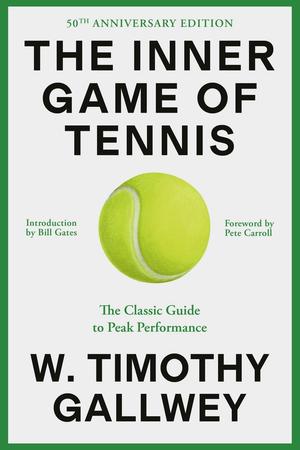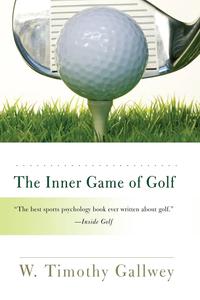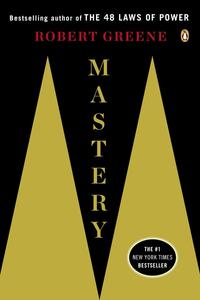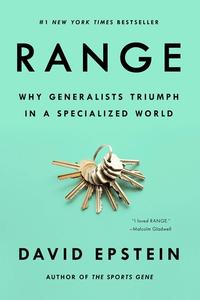
The Inner Game of Tennis by W. Timothy Gallwey: Summary & Notes
by Timothy Gallwey
In One Sentence
Peak performance comes from quieting the judgmental "Self 1" mind and trusting the intuitive "Self 2" body—the same mental principles apply to tennis, golf, music, and life.
Key Takeaways
- Self 1 (conscious mind) judges and tries to control; Self 2 (unconscious) knows how to perform
- Trying too hard creates tension and interferes with natural ability
- Non-judgmental observation allows learning without self-criticism
- Trust your body—it knows more than your analytical mind
- Focus on process (watching the ball) rather than outcome (winning)
- Relaxed concentration is the ideal performance state
Summary
One of the most innovative books about learning I've read, focusing almost solely on maximizing our innate ability to learn intuitively. Though this is specifically about tennis, and uses tennis for examples throughout, the lessons can be applied in learning almost anything, especially things which involve physical skill.
Who Should Read This Book
- Athletes wanting to improve mental game
- Anyone who chokes under pressure
- Coaches and teachers
- People interested in performance psychology
FAQ
What is Self 1 vs Self 2?
Self 1 is the conscious, analytical, judgmental mind that tries to control performance through verbal instructions. Self 2 is the unconscious, intuitive body-mind that already knows how to perform. Peak performance happens when Self 1 quiets down and trusts Self 2.
📖 Chapter-by-Chapter Breakdown
Click to expand the full detailed notes for every chapter →
📖 Chapter-by-Chapter Breakdown
Click to expand the full detailed notes for every chapter →
Notes
Introduction
- Every game is composed of two parts, an outer game and an inner game. The outer game is played against an external opponent to overcome external obstacles, and to reach an external goal.
- It is the thesis of this book that neither mastery nor satisfaction can be found in the playing of any game without giving some attention to the relatively neglected skills of the inner game. This is the game that takes place in the mind of the player, and it is played against such obstacles as lapses in concentration, nervousness, self-doubt and self-condemnation. In short, it is played to overcome all habits of mind which inhibit excellence in performance.
- The player of the inner game comes to value the art of relaxed concentration above all other skills; he discovers a true basis for self-confidence; and he learns that the secret to winning any game lies in not trying too hard.
Chapter Three - Quieting Self 1
- In short, “getting it together" requires slowing the mind. Quieting the mind means less thinking, calculating, judging, worrying, fearing, hoping, trying, regretting, controlling, jittering or distracting.
- The first skill to learn is the art of letting go the human inclination to judge ourselves and our performance as either good or bad.
- What I mean by judgment is the act of assigning a negative or positive value to an event.
- Be clear about this: letting go of judgments does not mean ignoring errors. It simply means seeing events as they are and not adding anything to them.
- Judgment results in tightness, and tightness interferes with the fluidity required for accurate and quick movement. Relaxation produces smooth strokes and results from accepting your strokes as they are, even if erratic.
- The first step is to see your strokes as they are. They must be perceived clearly.
Chapter Four - Trusting Self 2
- The answer is: if your body knows how to hit a forehand, then just let it happen; if it doesn’t, then let it learn.
- Letting go of judgments, the art of creating images and “letting it happen” are three of the basic skills involved in the Inner Game.
Chapter Five - Discovering Technique
- Bottom line: there is no substitute for learning from experience.
- So I believe the best use of technical knowledge is to communicate a hint toward a desired destination.
Chapter Seven - Concentration: Learning to Focus
- Fighting the mind does not work. What works best is learning to focus it.
- To still the mind one must learn to put it somewhere. It cannot just be let go; it must be focused.
- To learn this art, practice is needed. And there is never a time or situation that you cannot practice, save perhaps sleep.
- In tennis the most convenient and practical object of focus is the ball itself.
- Watching the ball means to focus your attention on the sight of it. I have found that the most effective way to deepen concentration through sight is to focus on something subtle, not easily perceived. It’s easy to see the ball, but not so easy to notice the exact pattern made by its seams as it spins. The practice of watching the seams produces interesting results.
- In short, become aware of your body. Know what it feels like to move your body into position, as well as how it feels to swing your racket. Remember: it is almost impossible to feel or see anything well if you are thinking about how you should be moving. Forget should’s and experience is.
The Here and Now of the Tennis Court
- Back to the tennis court. Watching the seams of the ball is a narrow focus of attention, and can be effective in blocking out nervousness and other possible irrelevant objects of attention. Sensing the feel of your body is a broader focus, and takes in a number of sensations that might aid in the learning of tennis.
- But it is also necessary to learn to focus awareness in the now. This simply means tuning in to what is happening in the present. The greatest lapses in concentration come when we allow our minds to project what is about to happen or to dwell on what has already happened.
- Since the mind seems to have a will of its own, how can one learn to keep it in the present? By practice. There is no other way. Every time your mind starts to leak away, simply bring it gently back.
- How to stay concentrated in the here and now between points? My own device, and one that has been effective for many of my students, is to focus attention on breathing.
- Putting attention on breathing simply means observing my breath going in, going out, going in, going out in its natural rhythm. It does not mean intentionally controlling my breath.
Lapses in Focus
- It is perplexing to wonder why we ever leave the here and now. Here and now are the only place and time when one ever enjoys himself or accomplishes anything. Most of our suffering takes place when we allow our minds to imagine the future or mull over the past.
Chapter Nine - The Meaning of Competition
- Winning is overcoming obstacles to reach a goal, but the value in winning is only as great as the value of the goal reached. Reaching the goal itself may not be as valuable as the experience that can come in making a supreme effort to overcome the obstacles involved. The process can be more rewarding than the victory itself.
- The difference between being concerned about winning and being concerned about making the effort to win may seem subtle, but in the effect there is a great difference.
- When I’m concerned only about winning, I’m caring about something that I can’t wholly control. Whether I win or lose the external game is a result of my opponent’s skill and effort as well as my own. When one is emotionally attached to results that he can’t control, he tends to become anxious and then try too hard. But one can control the effort he puts into winning.
- One final word of caution. It is said that all great things are achieved by great effort. Although I believe that is true, it is not necessarily true that all great effort leads to greatness.
Chapter Ten - The Inner Game Off the Court
- Clearly, almost every human activity involves both the outer and inner games.
- Learning to welcome obstacles in competition automatically increases one’s ability to find advantage in all the difficulties one meets in the course of one’s life.
Building Inner Stability
- Inner stability is achieved not by burying one’s head in the sand at the sight of danger, but by acquiring the ability to see the true nature of what is happening and to respond appropriately.
- Instability, in contrast, is a condition of being in which we are more easily thrown off balance when Self 1 gets upset by an event or circumstance.
- Maybe wisdom is not so much to come up with new answers as to recognize at a deeper level the profundity of the age-old answers.
- The cause of most stress can be summed up by the word attachment.
- Self 1 gets so dependent upon things, situations, people and concepts within its experience that when change occurs or seems about to occur, it feels threatened.
- Freedom from stress does not necessarily involve giving up anything, but rather being able to let go of anything, when necessary, and know that one will still be all right. It comes from being more independent — not necessarily more solitary, but more reliant on one’s own inner resources for stability.
- Freedom from stress happens in proportion to our responsiveness to our true selves, allowing every moment possible to be an opportunity for Self 2 to be what it is and enjoy the process. As far as I can see, this is a lifelong learning process.
- What else can be done to promote stability? The message of the Inner Game is simple: focus. Focus of attention in the present moment, the only one you can really live in, is at the heart of this book and at the heart of the art of doing anything well. Focus means not dwelling on the past, either on mistakes or glories; it means not being so caught up in the future, either its fears or its dreams, that my full attention is taken from the present. The ability to focus the mind is the ability to not let it run away with you. It does not mean not to think—but to be the one who directs your own thinking.


